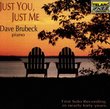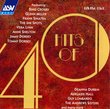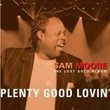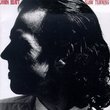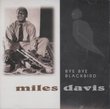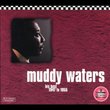| All Artists: Mississippi John Hurt Title: The Complete Studio Recordings Mississippi John Hurt Members Wishing: 7 Total Copies: 0 Label: Vanguard Records Original Release Date: 10/31/2000 Release Date: 10/31/2000 Album Type: Box set, Original recording remastered Genres: Country, Blues, Pop Styles: Classic Country, Traditional Blues, Acoustic Blues Number of Discs: 3 SwapaCD Credits: 3 UPCs: 015707018128, 0090204991754, 090204991754 |
Search - Mississippi John Hurt :: The Complete Studio Recordings Mississippi John Hurt
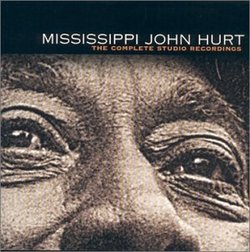 | Mississippi John Hurt The Complete Studio Recordings Mississippi John Hurt Genres: Country, Blues, Pop
Gentle, graceful, subtle, sweet--these aren't descriptions generally applied to the blues, but they offer a sense of Mississippi John Hurt's uniqueness and enduring legacy. Rediscovered during the 1960s folk boom after las... more » |
Larger Image |
CD DetailsSynopsis
Amazon.com Gentle, graceful, subtle, sweet--these aren't descriptions generally applied to the blues, but they offer a sense of Mississippi John Hurt's uniqueness and enduring legacy. Rediscovered during the 1960s folk boom after last recording in the late 1920s, Hurt cut the three albums compiled here when he was in his early 70s. His conversational phrasing sounds as natural as breathing, while his ragtime-tinged fingerpicking on acoustic guitar reveals more complexity the closer you listen. Beyond blues classics like "Candy Man" (the sly sensualist wasn't referring to lollipops), Hurt's range encompasses everything from folkish narratives ("Talking Casey," "Spike Driver Blues") to Southern spirituals ("Nearer My God to Thee," "Farther Along"). Though Hurt died in 1966, shortly after the last of these sessions, the music still sounds so fresh, you can almost hear the twinkle in his eye. --Don McLeese Similarly Requested CDs
|
CD ReviewsGentle Perfection Marc Ruby? | Warren, MI USA | 06/07/2002 (5 out of 5 stars) "I actually have the three LP's this set represents, bought when they first came out. I played them so often back in college that they are pretty hopeless now, but I have never been able to let go of them. I just ordered this three CD set recently, and now I can officially move past the ancient vinyl into the digital age.I have said elsewhere that John Hurt was a tremendous influence on me, both as a fledgling guitarist and as a newbie folk song aficionado. I won't belabor the point, I'm still a fledgling guitar player, but I get indescribable attacks of nostalgia and envy listening to them even now. There are other great musicians that play with a similar finger style, but Hurt seems to reach into some other 'space' to consistently create a total performance that can leave you blinking.Hurt plays with an alternating thumb and several 'picking' fingers. No picks to change the tone of the guitar. The base line is so dead on the beat that the melody line seems somehow played by an eerie third hand. Hurt's voice defies description, kind of a sweet whiskey base. His singing works right in with the guitar playing, weaving into the guitar rhythm and creating syncopation out of unexpected silences. Call it singing a duet with the guitar. At 73, this man was at his peak, and the studio sessions are his final legacy. At 74, finally getting all the credit he was due, he died back at home in Mississippi.The CD's are expertly re-mastered and some of the irritating balance and equalization problems that haunted the original LP's are gone. In fact, the recordings sound like they were made last week, not 40 years ago. If you want to own a good representative selection of the work of one of America's authentic masters of folk blues this is the perfect collection." Possibly the most under-rated artist ever Dan Grissom | Nacogdoches, TX | 11/05/2004 (5 out of 5 stars) "Mississippi John Hurt is the type of artist that when you hear him for the first time, it changes something in you. I heard someone say that once and didn't believe it until I heard for myself. The way I think about music, the blues, songwriting, and even life itself has been affected by Mississippi John Hurt. His music is some of the most beautiful, honest music ever made. Every time I hear it, it makes me wish that I was alive when he was, and that I knew him. All of his music, though it is typically refered to as "the blues," has such a joy of life behind it. I know it sounds a little overly dramatic, but Mississippi John Hurt can change your life if you let him." I remember ED Denson | Alderpoint, Ca USA | 01/23/2002 (5 out of 5 stars) "I toured and lived with John Hurt for some time in the 1960s as his "manager" and sometimes as his record label. His music recorded in the 1920s shows the vigor and vitality of youth - and I recommend it. His music from the 1960s shows the gentle soul of a great human being - as well as a master musician. There are more John Hurt studio recordings from that era, but these show him off well. Most people who hear the music of Mississippi John Hurt come to love it and him. You probably will too."
|

 Track Listings (12) - Disc #1
Track Listings (12) - Disc #1
